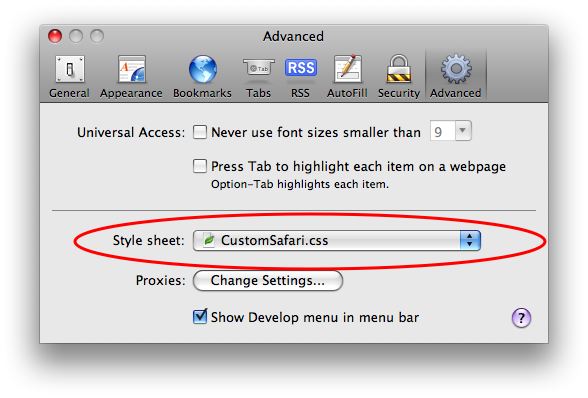Thomas Baekdal makes a convincing argument for using pass-phrases not passwords (via). It’s excellent advice, and I know I’m not alone in having advocated it for years.
My keyboard has 26 letters, 10 numbers, and 12 symbol keys, like ~. All but spacebar make a different symbol when I hold down shift, giving me 93 characters to use in my passwords. But the number of words that can make-up a pass-phrase is easily in the 100,000s. Estimating exactly how big is a bit tricky, but I will stick with 250,000 here (I think it’s an undercount, more on this later).
We Know How To Talk
The human brain has an amazing aptitude for language. But “passwords” aren’t really words, so they don’t tap into this ability. In fact, we often use words to try and remember the nonsense-characters of a password.
Wouldn’t it make more sense to just use the words directly, if we can remember them more easily?
Hard For Computers, Not Hard For Us
People feel that if security system A is harder for them to use then system B, then A must be harder for an attacker to bypass. But the facts don’t always match this intuition.
What authentication code do you think is harder for a bad guy to hack, the 7 character strong password “1Ea.$]/”, or the mnemonic for the first 3 characters, “One Elvis Amazon”? Certainly “1Ea.$]/” is harder for a person to remember. It feels like it should be harder to break. But a computer, not a person, is going to be doing the guessing, and all it cares about is how big the search space is. There are 937 possible 7 character passwords. Let’s say there are 250,000 possible English words (more on that figure later). Then there are 250,0003 3 word combinations — meaning an attacker would have to do 260 times more work to guess “One Elvis Amazon” than to guess “1Ea.$]/”.
With pass phrases, easier for the good guys is also harder for the bad guys.
Exactly How Much Harder
The “250,000 word” figure is a bunch of hand-waiving, but I believe it’s an undercount. I picked it, because I wanted a round number to crunch; it’s what Thomas Baekdal picked; and it’s about the size of the Mac OS X words file,
$ wc -l /usr/share/dict/words
234936
But liberally descriptive linguists say that the 1,000,000th word will be added to the English Language on June 10th, 2009. The more conservative Webster’s Third New International Dictionary, Unabridged list 475,000 English words. Obviously neologisms, slang, and archaic terms are fine for pass phrases. People like discovering quirky words. I see far more more people embracing the login, “kilderkin of locats”, then rejecting it.
Different conjugations (can) count as different words in pass-phrases. There’s only one entry in a dictionary for swim, but swim, swimming, swam, etc. make for distinct pass-phrases (eg. “Elvis swims fast”, “Elvis swam fast”, etc. Both phrases don’t show up in a google search by the way.) So the real number of words should be a few fold larger than a dictionary indicates.
But not all words are equally likely to be chosen — just as some characters are more popular in passwords. My earlier figure of “2500003 3 word combinations” was based on the naive assumption that each of the 3 words is independent. But people do not pick things at random. And a phrase is by definition not completely random — it must have some structure. I’m unaware of research into exactly how predictable people are when making-up pass-phrases.
But given how terrible we are at picking good passwords, and how good we are at remembering non-nonsense-words, I am optimistic that we can remember pass-phrases that are orders of magnitude harder to guess than the “good” passwords we can’t remember today.
Fewer Ways To Fail
We’ve all locked ourselves out of an account because of typos or caps lock. But pass-phrases can be more forgiving.
Pass-phrases are caseinsensitive. There’s no need to lock someone out over “ELvis…”.
Common typos can be auto-corrected, much as google automatically suggests words. Consider the authentication attempt “Elvis Swimmms fast”. The system could recognize that “Swimms” isn’t a word, and try the most likely correction, “Elvis Swimms fast” — if it matches, then there’s no reason to ask the user if it’s what they really meant. (Note that only one pass-phrase is checked per login attempt.) I don’t have hard data here, but given how successful google is at interpreting typos, I’d expect such a system to work very well.
Pass-phrases might be more difficult on Phones, and similarly awkward to write with devices. Writing more letters means more work. Predictive text can only do so much. Repeatedly typing 3 letters and accepting a suggestion is clearly more work then just tapping out 6 characters. Additionally, there are security concerns with a predictive text system remembering your pass-phrase, or even a small part of it.
But for computers, pass phrases look like a clear usability win.
Easily Secure Conclusion
(In case you were wondering that was a unique phrase when I wrote this.) Using pass-phrases over passwords (which are really pass-strings-of-nonsense-sybols-that-nobody-can-remember) makes a system significantly harder to crack. Pass-phrases are easier for humans to remember, and a system that uses them can be very forgiving. But as always, the devil is in the details. It’s terrifying to be an early adopter of a new security practice, even if it seems sound.

